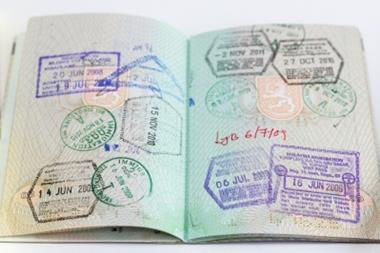Employers need to review their procedures following changes to the UK’s prevention of illegal working and civil penalty system

On 16 May 2014, a number of important changes to the UK’s prevention of illegal working requirements and associated civil penalty scheme took force.
Since 2008, employers hiring individuals without the right to work in the UK have been liable to civil penalties, although properly conducted ‘right to work checks’ and adequate retention of requisite copies may provide a statutory excuse against liability.
Under the recent changes – intended to strengthen and simplify the regime – employers will benefit from the reduction of required checks and extension of grace periods. However, the introduction of more severe penalties for repeat offenders, while not unreasonable, creates the potential for staggering fines for employers that unintentionally breach multiple times for different reasons.
Owing to the breadth of the amendments, this article focuses on the most significant of these latest reforms.
Increased civil penalties and right to work checks
The maximum civil penalty has been raised from £10,000 (€12,600) to £15,000 per illegal worker, with subsequent breaches in a three-year period carrying a maximum fine of £20,000.
The requirement to conduct an annual check for employees with a time-limited right to work has been replaced with the introduction of a check at the point that the individual’s work permission expires. Although some employers will find this to be more complex to administer (as the relevant dates to conduct the check will be different for each migrant worker), the new requirements will reduce the number of repeat checks required for migrants with longer-term immigration permission.
Notwithstanding the above changes, a follow-up check must be conducted within six months if the migrant presents one of the following documents:
- a certificate of application dated less than six months for a family member of a EEA/Swiss national stating the holder is permitted to take employment and a positive verification notice from the Home Office Employer Checking Service (HOECS);
- an application registration card issued by the Home Office stating the holder is permitted to take the employment and a positive verification notice from the HOECS; or
- a positive verification notice from the HOECS to the employer that indicates that the named person is permitted to undertake the work.
If an employee undertook any illegal work before 16 May 2014 and their employment began between 29 February 2008 and 15 May 2014 (inclusive), an annual check is required for the employer to maintain a statutory excuse.
The grace period for employers to conduct right to work checks on employees acquired as a result of the Transfer of Undertakings (Protection of Employment) Regulations has been increased from 28 to 60 days. This grace period has not been extended to follow-up checks. Employers believing an employee has filed a timely extension application or appeal against an immigration decision now have a 28-day grace period from the date of expiration of the employee’s work permission document to conduct a follow-up check.
Documentation
The prescribed documents for right to work checks in List A and List B of the Code of Practice have been simplified, removing certain documents.
Documents must now not have expired, except passports naming the holder as a British citizen or citizen of the UK and Colonies with the right of abode in the UK, a EEA national or a Swiss citizen. Where applicable, a passport (endorsed with any relevant immigration permission) or a current Home Office Biometric Residence permit remain the preferable documents that employers should verify.
Employers must now record the date on which the right to work check was undertaken (previously it was advisable to date only the retained right to work documents).
When relying on a passport, employers are no longer required to copy the outside front cover page of the document.
Students
Employers that hire students with a restricted right to work must now retain a copy of evidence obtained from the student’s education sponsor that confirms the student’s academic term and vacation times over their period of study in the UK for which they will be employed. This is because the number of hours a student is permitted to work per week varies depending on whether it falls during vacation or term time.
Mitigating factors for civil penalty calculation
A partial right to work check is no longer a mitigating factor in the calculation of a civil penalty.
To ensure compliance and avoid penalties, employers should consult with an immigration specialist to review their right to work check procedures and update them as required.
Natasha Chell is a partner at Laura Devine Solicitors
Downloads
Illegal working
PDF




















No comments yet